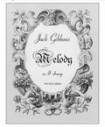|
||
WORDS...
|
This page contains links to various audio pages of Gibbons' music. Scroll down and click on the picture links to hear some of his work and read more about the music. More music can be found on Jack Gibbons' official YouTube site. |
|
|
Music by JACK GIBBONS Played by Jack Gibbons (piano) |
||
Music by JACK GIBBONS Played by Jack Gibbons (piano) |
||
|
Music
by JACK GIBBONS
Sung
by Ann Mackay (soprano) |
||
|
Music
by JACK GIBBONS
Sung
by Ann Mackay (soprano) |
||
|
Music by JACK GIBBONS Played by Jack Gibbons (piano) |
||
|
Music by JACK GIBBONS Played by Jack Gibbons (piano) |
||
|
More
on the music of Jack Gibbons In addition to his performing career Jack Gibbons is also now becoming known as a composer. This side of his career began unexpectantly when he returned to composition while recovering from injuries sustained in a life-threatening car accident in 2001. As a child he had begun composing at the age of 9, his first composition being entitled simply Sonata in C! By the age of 13 he had written and fully orchestrated a three movement piano concerto and at 14 was awarded a special composition prize by the British composer Sir Lennox Berkeley. Since then his performing career prevented him from pursuing his own writing. Then in 2001, while recovering from his injuries Gibbons began writing songs and has since had his music performed with great success in New York (in a concert consisting entirely of his own work) as well as in the UK and on the BBC. |
 |
|
|
Jack Gibbons' compositions to date include over 30 works for solo piano, two works for orchestra, and over 40 song settings mostly for soprano or bass of poems by a variety of authors including: Christina
Rossetti, Emily Brontė, Charlotte Brontė, Audio samples of Jack's songs and piano music will be posted regularly on this web site. Below is a list of his works to date, with approximate durations. To listen to more audio samples and read further information on specific pieces click on the images above these paragraphs. |
||
List of the music to date of Jack Gibbons
with approximate durations
SONGS (listed in alphabetical order)
A Life Beyond (words by Jack Gibbons)
(c.2'30)
A Love Alive (words by Jack Gibbons)
(c.4')
A Red, Red Rose (words by Robert Burns)
(c.2'30)
Among the flowers (words by Christina
Rossetti) (c.3')
Beloved Again (words by Emily Brontė)
(c.4'30)
Cradle Song (words by John Phillip)
(c.3')
Echo (words by Christina Rossetti)
(c.3')
Echo’s Song (words by Ben Jonson)
(c.3')
Epitaph for a child (words by Robert Herrick)
(c.3')
How Sweet I Roam'd from Field to Field (words by
William Blake)
(c.2')
I Love My Jean (words by Robert Burns)
(c.3')
I'll Not Weep (words by Emily Brontė)
(c.4'30)
In The Lane (words by Christina Rossetti)
(c.1'30)
Life (words by Charlotte Brontė) (c.2')
Longing (words by
Matthew Arnold) (c.3')
Love me, I Love You (words by Christina
Rossetti) (c.2') Mariana (words by Christina Rossetti) (c.2') May (words by Christina Rossetti) (c.2'30) Music, when and soft voices die (words by Percy Bysshe Shelley) (c.3')
Oh What Comes Over the Sea (words by Christina Rossetti) (c.2')
Once (words by Christina Rossetti) (c.3') Perhaps (to R.A.L.) (words by Vera Brittain) (c.5')
Remember Me (words by Christina Rossetti)
(c.8') Roses for the flush of youth (words by Christina Rossetti) (c.2') Sapessi pure! (words by Christina Rossetti) (c.3'30)
Shall Earth No More Inspire Three (words by
Emily Brontė) (c.3')
Sing A Song Of Spring (words by Jack Gibbons)
(c.3')
Sleep Not (words by Emily Brontė)
(c.2'30)
The Bourne (words by Christina Rossetti)
(c.2')
The
The Linnet (words by Walter de la Mare)
(c.2') The One Grief (words by Edith Wharton) (c.3'30) The Parting Day (words by Edith Wharton) (c.3'30)
The Sun Is Set (words by Jack Gibbons)
(c.3')
Weep you no more (words by John Dowland)
(c.3')
When I am Dead My Dearest (words by Christina Rossetti) (c.2')
When We Two Parted (words by Lord Byron)
(c.3') Why? (words by Christina Rossetti) (c.2'30)
CHORAL (SATB unless otherwise stated)
Cradle Song (words by John Phillip)
(c.3')
Love me, I Love You (words by Christina
Rossetti) (c.2') Mariana (words by Christina Rossetti) (c.2') Music, when and soft voices die (words by Percy Bysshe Shelley) (c.3')
Oh What Comes Over the Sea (words by Christina Rossetti) (c.2')
Sudden Light, for women’s chorus (words by
Dante Gabriel Rossetti) (c.3'30)
PIANO (listed in alphabetical order)
A New World Song (c.3'30)
A Song from the Old World Andante (c.4'30) Andantino (c.3') Consolation (c.7'30)
Contredanse (c.4'30) Esquisses (c.15'30)
In Dulci Jubilo (c.3') Lullaby (in memoriam)(c.5'30) Melody in F sharp (c.5'30) Menuetto antico (c.6'30) Menuetto semplice (c.4') Minuetto malinconico (c.3'30) Music Box (c.4') Nocturne (c.6)
Prelude in A flat (c.2') Prelude in E major (c.2') Preludio (c.3'30)
Pričre (c.4') Sarabande (c.5'30) Serenade (c.4'30) Shanty (c.7') Siciliano (c.3'30)
Song Without Words (c.4'30) Tarantella (c.5'30) Waltz in E flat minor (c.4') Waltz in E major (c.3'30) Waltz in F major (c.4') Waltz in F minor (c.6')
Waltz in G major (c.3')
Waltz for a musical box (c.3'30)
INSTRUMENTAL
Siciliano
for flute and piano (c.2'30) Siciliano for flute, cello and piano (c.2'30)
ORCHESTRA
|
||
|
||





.jpg)



